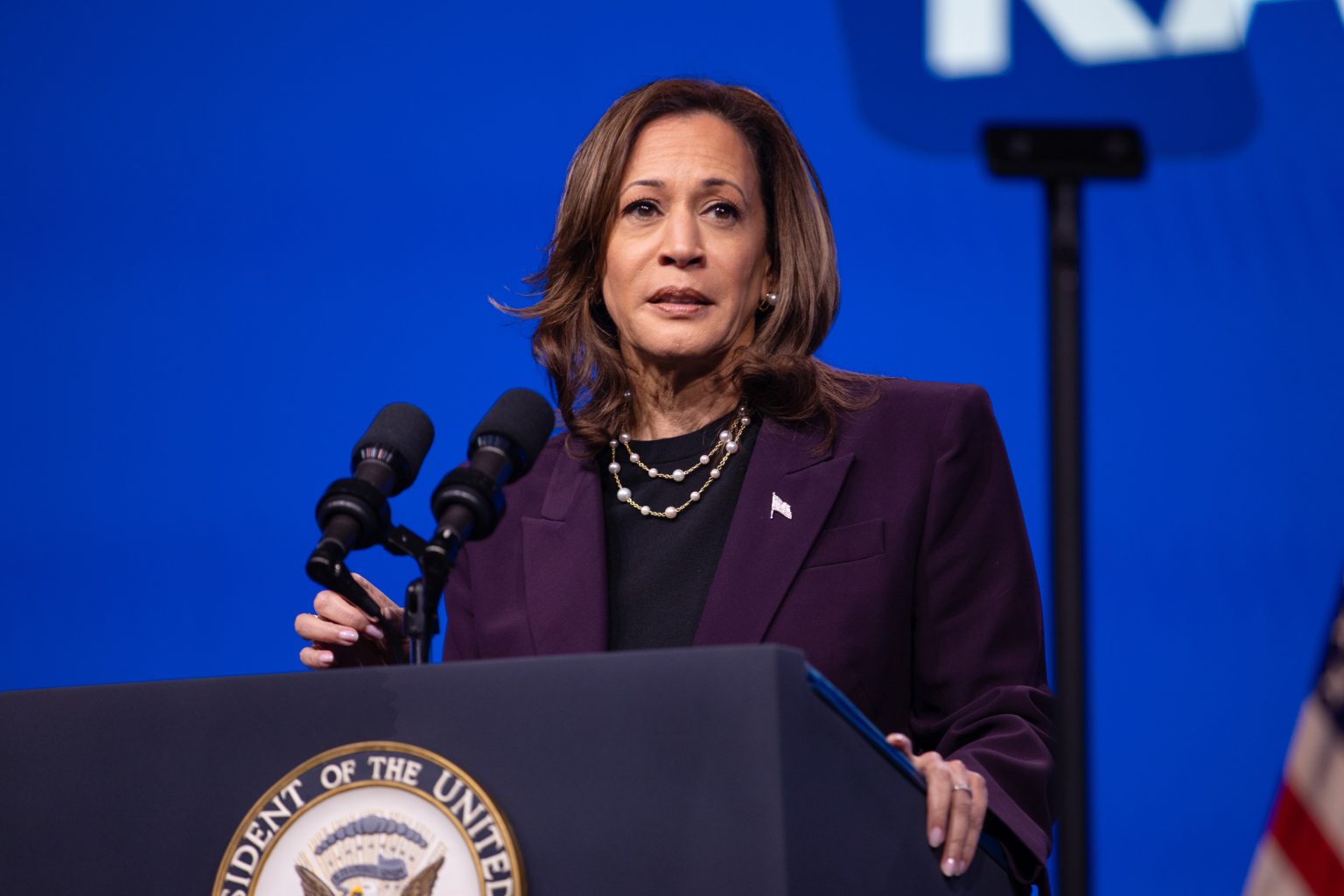Summarize this content to 2000 words in 6 paragraphs Former Vice President Kamala Harris holds an early lead among Democratic voters if she chooses to run in the 2026 California gubernatorial race, according to a new poll.Newsweek has reached out to Harris’ team for comment via her online contact form.Why It MattersHarris, who has served California as a district attorney, attorney general and in the U.S. Senate, has not made her next moves clear after losing the White House race to President Donald Trump. While some have floated her as possibly making another presidential bid in 2028, others believe she would be a strong candidate to replace Democratic California Governor Gavin Newsom, who will be term limited after 2026.Harris would bring a high level of name recognition and fundraising ability to a race in California, generally viewed as a safely Democratic state. Her decisions about her future could play a significant role in the future direction of the entire Democratic Party after a string of stinging losses last year.
Former Vice President Kamala Harris speaks at the American Federation of Teachers’ 88th National Convention in Houston on July 25, 2024.
Former Vice President Kamala Harris speaks at the American Federation of Teachers’ 88th National Convention in Houston on July 25, 2024.
Montinique Monroe/Getty Images
What To KnowAn Emerson College poll, conducted among 469 registered voters on February 11, showed Harris with more support than other possible Democratic candidates in the gubernatorial race.Harris was backed by 57 percent of respondents in the survey, large lead over other potential Democratic contenders. Former Representative Katie Porter placed second in the poll at 9 percent, while former state Assembly Speaker Antonio Villaraigosa received 4 percent.While the poll reveals possible Democratic support for Harris if she chooses to run and shows other Democrats may have an uphill battle to win over the base against the former vice president, it notably did not include candidates of other parties. California has a nonpartisan primary system for statewide races, so it’s unclear how other voters could change the state of the race.Harris said of her future during phone calls in November that she is “staying in the fight,” Politico reported.She had an extensive career in California politics, previously serving as San Francisco district attorney and the state’s attorney general. She was elected to the U.S. Senate in 2016.A poll conducted by University of California, Berkeley and the Los Angeles Times showed Harris with a substantial advantage over other candidates for the 2026 California gubernatorial race. It surveyed 4,838 registered voters from October 22 to October 29, 2024.According to that survey poll, about 72 percent of Democrats said they would be very likely or somewhat likely support Harris, compared with 8 percent of Republicans and 38 percent of voters who indicated “no party preference.”A Capitol Weekly poll released on Thursday showed Harris in a closer race among the entire electorate. It showed 23 percent of all voters would support her, with 21 percent backing Republican businessman John Cox. Porter placed third with 16 percent, and former Republican candidate for state controller Lanhee Chen received 10 percent support.California is viewed as among the most Democratic states in the country, backing Harris by about 20 points last November.What People Are SayingCalifornia Attorney General Rob Bonta, a Democrat, to Politico: “I would support her if she ran, I’ve always supported her in everything she’s done. She would be field-clearing.”Porter said during a University of California, Irvine panel interview in December: “If Vice President Harris were to choose to run, I am certain that that would have a near field-clearing effect on the Democratic side.”What Happens NextCalifornians will head to their polls for the state’s Democratic primary in June 2026, and candidates are expected to make announcements over the next year or so. Cook Political Report classifies California’s governor race as Solid Democratic, meaning it is “not considered competitive and [is] not likely to become closely contested.”



